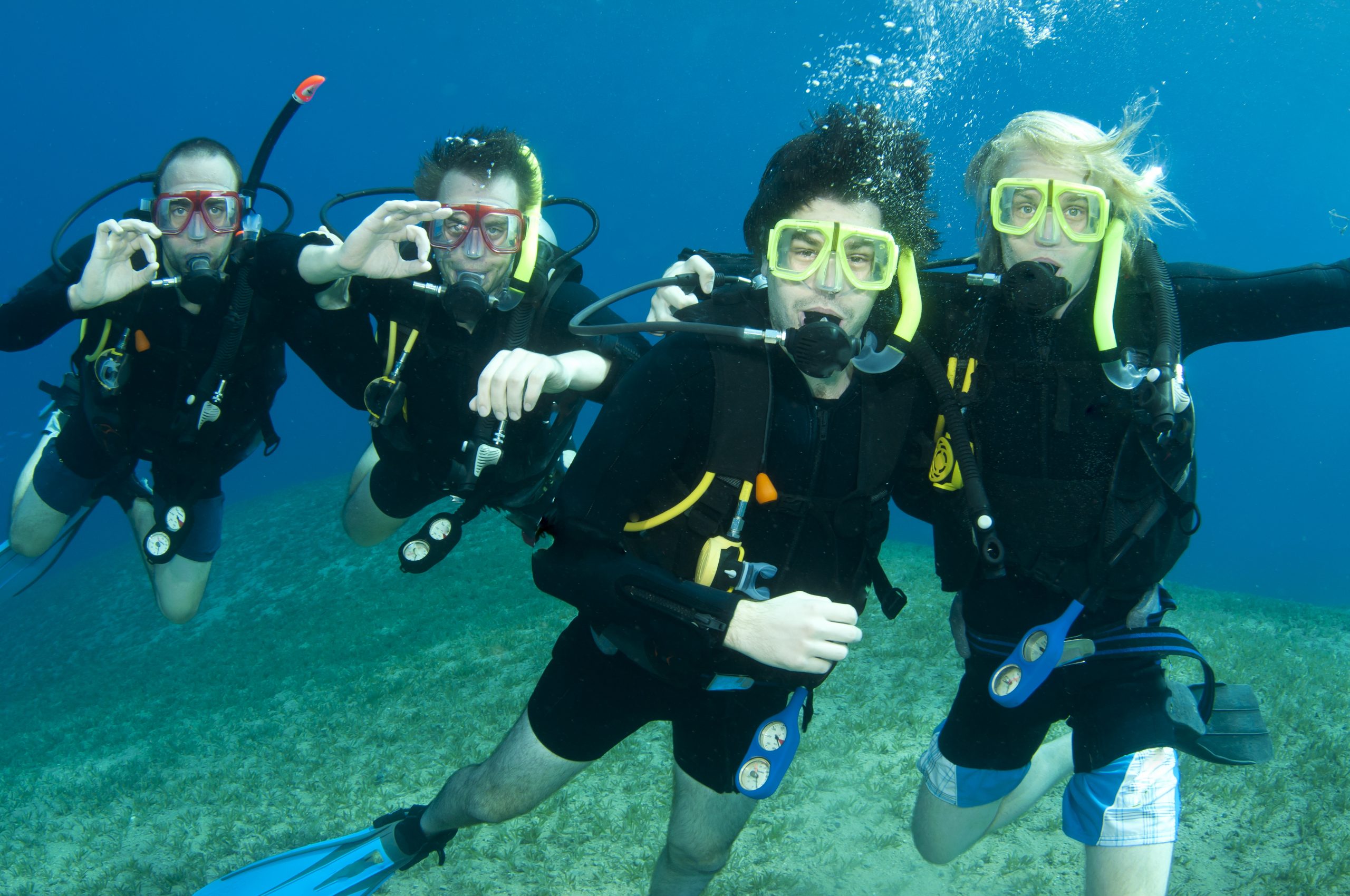
friends scuba dive together in the sea
Scuba diving is a thrilling and adventurous activity that allows us to explore the magnificent underwater world. However, it is also a potentially dangerous activity that requires proper training, equipment, and awareness to avoid risks and hazards. In this article, we will provide you with some essential tips for staying safe while scuba diving, so that you can enjoy this fascinating sport with confidence and peace of mind.
- Get Certified and Keep Your Skills Sharp
The first and most important step for safe scuba diving is to get certified by a reputable diving organization, such as PADI or NAUI. Certification courses teach you the necessary skills, knowledge, and safety procedures to dive safely and responsibly. You will learn how to use scuba equipment, how to plan and execute dives, how to respond to emergencies, and how to protect the marine environment.
After getting certified, it is crucial to keep your skills sharp by practicing regularly and taking advanced courses. Scuba diving is a perishable skill, meaning that you can lose proficiency if you don’t dive for a long time. By practicing regularly, you can maintain your diving skills, gain experience, and learn new techniques that can enhance your safety and enjoyment.
2. Choose the Right Dive Site and Buddy
Another crucial factor for safe scuba diving is choosing the right dive site and buddy. Before diving, you should research the dive site’s conditions, such as water temperature, visibility, currents, depth, and marine life. You should also check the weather forecast and tide charts to avoid rough or dangerous conditions.
When diving with a buddy, you should choose someone who is equally or more experienced than you, and who shares your diving goals, interests, and preferences. You should agree on the dive plan, communication signals, emergency procedures, and equipment checks before entering the water. You should also keep a close eye on your buddy during the dive, and be prepared to assist or signal for help if needed.
3. Check and Maintain Your Equipment
Your scuba diving equipment is your lifeline underwater, and it should be in good condition and properly maintained. Before diving, you should check your equipment for any signs of damage, wear, or malfunction. You should also test your equipment’s functionality, such as regulator breathing, inflator operation, and buoyancy control.
If you rent scuba equipment, make sure to inspect it thoroughly and ask for assistance if needed. You should also familiarize yourself with the rental gear’s brand, model, and settings, and adjust it to your size and comfort. If you own scuba equipment, make sure to maintain it regularly and follow the manufacturer’s instructions for cleaning, storing, and servicing.
4. Dive within Your Limits and Respect Your Body
Scuba diving can be physically and mentally demanding, and it is essential to dive within your limits and respect your body’s needs. Before diving, you should assess your fitness, health, and stress levels, and avoid diving if you have any medical conditions or medications that can affect your diving ability or safety.
You should also monitor your breathing rate, heart rate, and fatigue during the dive, and take breaks or ascend if you feel uncomfortable or stressed. You should never push yourself beyond your comfort zone or risk tolerance, and always prioritize your safety and well-being.
5. Watch Out for Hazards and Emergency Situations
Despite all precautions, scuba diving can still pose risks and hazards that require immediate attention and action. Some common hazards include marine life encounters, equipment failure, entanglement, rapid ascent, hypoxia, and decompression sickness.


